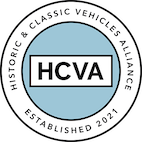Here, we give you a little more useful information and detail about aspects of our tours and the services we offer. However, if you have any further queries please contact us by telephone on +44 (0)1264 710375 or email info@classictravelling.com Also have a look at the FAQs section as hopefully a number of questions you may have are answered here too.
Tour Pack
Each car will be given a detailed comprehensive tour book (group tours only) and/or our excellent and easy to use app for your smartphone or iPad, which will contain:
- An overview of your holiday and the countries/regions to be visited
- Detailed but easy to follow, written directions of your daily route, accompanied by overview maps marked with the route
- The address, telephone number, web address for each hotel, as well as information on parking, facilities etc
- A detailed itinerary with comprehensive information on everything there is to do, see and visit each day to ensure you’re able to make the most of your trip
- Contact details for your Classic Travelling guides, and other tour participants (accompanied group tours only)
- We also give each car a road atlas or maps (accompanied group tours only)
- We can also supply pre-programmed Garmin GPS/sat navs (accompanied group tours only) or the GPX files for you to load onto your own Garmin or TomTom. (These must be reserved in advance)
Support Vehicles
The Classic Travelling event director and tour guide will accompany all group tours (not any self-drive, independent Classic Tours) in a classic car. At least one of the Classic Travelling crew is trained & qualified in first-aid (human, not car!). Their vehicle will have a small first-aid kit and mobile phone, to keep in contact with each car. They will also carry a basic tool kit (unless accompanied by the Tour Mechanic – see below).
Please ensure you have enough spares with you and that the car has been fully prepared for its journey. If in doubt over any part then please replace it or take a spare. The organisers’ resources are limited and may not be able to cope with a serious accident or breakdown. We strongly recommend you have European breakdown cover, including repatriation cover. This is often included with classic car insurance, so check with your insurance provider.
For tours outside Europe only (eg USA/South Africa) fully comprehensive motor insurance is included in the tour price (for cars valued up to £150,000). Breakdown cover may be available on a reciprocal basis through your normal cover (eg AA/RAC) for tours outside Europe. Please check with your provider.
For our group tours in continental Europe (not UK), we are extremely fortunate to have our trusty mechanic accompanying each group. All the cars on a group tour are entitled to basic mechanical work (up to about 30 minutes) to keep you on the road and in the event of any ‘failures to proceed’. Any extra labour, and any parts used, will be charged to you at the usual rate. However, please also have European breakdown cover (it’s often included with classic car insurance, so please check with your insurer) and repatriation cover, just in case our tour mechanic is unable to fix the problem.
For further information click here.
Vehicle Information
Car Security
You alone are responsible for the security of your car and its contents. Please take the usual precautions such as not leaving any valuables on display in your car. Obviously, we also ensure that there is suitable parking for your car, and that it is as secure as possible. This may not always be under cover or in a garage, and the parking is rarely locked, but it will be in a private car park and not on the street. We also ensure that access for our cars is appropriate, with no bad driveways, low ramps or impossibly tight corners, but the surfaces may be gravel or tarmac/concrete etc.
Legal Vehicle Requirements
This varies from country to country and is subject to change. Please click on the links below, which should provide you with the information you require. You are responsible for ensuring your car complies with regulations, but generally please ensure you have a warning triangle, high-visibility jackets for everyone in the vehicle, spare bulbs, fire extinguisher, headlamp adapters, country of origin sticker. Check the www.theaa.com for specific details. You will also need to have your vehicle registration documents and proof of insurance.
Breakdowns & Accidents
Despite the best preparation and most careful driving, breakdowns and accidents still happen. Each owner and driver are solely responsible for the maintenance and road-worthiness of their vehicle. We also suggest that you:
- Have your car thoroughly serviced and prepared before departure
- Have appropriate European breakdown and recovery insurance which provides alternative vehicle use, should your car not be capable of being immediately repaired, as well as vehicle repatriation. This may well be included with your vehicle insurance, so do check. This is often more suitable than getting standard cover from RAC or AA etc, as they will already know the appropriate garages.
- On escorted group tours call the Classic Travelling tour guides or mechanic (numbers in tour book) and we will try to help as best we can
Vehicle Maintenance
To ensure your holiday is as hassle-free and enjoyable as possible, please ensure your car is fit for the trip and in excellent mechanical condition. We recommend a thorough service before departure. We suggest that you tell your mechanic about the tour, and the time and distances involved, and if in any doubt over any part, replace it or take a spare – Click here for our Tools & Spares List.
Power and handling are less important that robustness and reliability.
Many of the problems that clients have experienced on tours can usually be diagnosed and dealt with before departure. We recommend you at least check the following before you leave, to ensure you make the most of your holiday:
- Fluid levels – Engines can tend to get quite hot when driving mountain roads, so an efficient cooling system is essential.
- Tyres – you will be doing a lot of miles. Ensure you have the correct pressure and that your spare tyres are in good condition
- Brakes – Gradients can be severe, so please ensure your brakes are in perfect condition.
We would advise that you also bring with you:
- Some additional oil (most brands are readily available in Europe) but the classic 20/50 is not easily available.
- Your car handbook (for more modern cars) as this may well list European dealers for your marque should the need arise, or have some guides to fixing the problem.
- Your insurance or breakdown cover details – in our experience they have been very good.
The very best thing to prepare your car is to drive it regularly for a few weeks before you go, as this will help identify any niggles and give you time to return it before the tour starts. Ideally, drive at least 500 miles. But do get a full service as well, or at least a check-up by your regular mechanic or specialist. It is important that your mechanic knows that you’re using the car for touring (rather than weekend jaunts) and checks everything.
Brakes, cooling and tyres are some of the most important parts. At the very least give the car a full spanner check, tightening any nuts and bolts, especially on the exhaust and wing stays.
Cooling: Ensure your radiator is clean, and possibly upgrade with extra rows or a larger unit. Make sure the hoses are on good condition and that hose clips are strong. Check the rubber mountings. Pressure test the radiator cap to ensure there are no leaks. The waterless coolants are very good and work well on old monobloc engines which can run at temperatures much higher than 100C. However, it’s important to understand what temperature is too hot for your engine as, by running a coolant that won’t boil, you no longer have an alarm to let you know things are going wrong and it’s easier to do major damage. Water Wetter (available online) can be used in your cooling system. It reduces the surface tension of water and so gives it a better contact with the radiator – more efficient. Anti-freeze is also a coolant and inhibits corrosion.
Fan Belts: If your fan belt requires the pulleys to be removed to fit a new one then, if possible, have a spare fitted behind the pulley and secured out of harm’s way.
Fuel Tanks: Over time condensation collects in the bottom of fuel tanks, causing rust and corrosion. Eventually, enough water accumulates that it can be sucked into the fuel system (along with some rust). So ensure your fuel tank is clean and empty of water. And use a filter funnel or in-line fuel filter fitted before the pump.
Electrics: Get rid of choc block and scotch locks in favour of proper crimped terminals. Doing so may reveal rotten or corroded wires and bad earths. Ensure the battery and starter motor are up to the job. A high-torque starter motor may be worthwhile (if you’re changing other parts and have access). It’s worth changing from a dynamo on older cars to an alternator – particularly for lights, chargers, GPS systems etc – and especially important for countries that demand lights are on during the day too. Be sure to check the output though and look for at least 60 Amps.
Technical Data: Have the data for your car handy (this is in the manual, if you have one). Information such as points gap, ignition timing, cam timing, cylinder head torque. Also, know what has been modified (cams etc) and the data for the modifications. It’s worth marking your distributor with an advance/retard arrow, and with the firing order and direction of rotation. Also, mark up your plug leads with cylinder number. On the carburettors indicate the way to turn the screw for a richer/weaker mix.
Check list (some of this is very obvious):
Download our Tools & Spares List
- Tax & MOT – ensure these are both up to date
- Check your insurance is valid for the countries to be visited
- Change the engine oil and filter if it hasn’t been done recently
- Check the gear and diff oils
- Check anti-freeze/coolant levels.
- Grease all the suspension points and carry a grease gun in the car if you’re planning on doing more than 1000 miles.
- If you have a cam belt then ensure it’s been changed at the recommended intervals. Check the fan belt too.
- Tyres: Check the pressure and top up if necessary. If your tyres have inner tubes carry at least one spare. Inner tubes are very hard to get now, especially abroad. Buy the best available. Also date check your tyres:
- The week and year of manufacture of the tyre are always marked on the sidewall. A tyre marked 2501 was manufactured in week 25 of 2001. Manufacturers usually also mark tyres to show which factory they were made in, so they can trace where and when a faulty tyre was made.
- Find a string of numbers & letters close to the tyre’s bead usually starting with DOT at the end you will find the 3 or 4 numbers relating to the age of your tyres. If your tyres have just 3 numbers they will have been made pre- 2000 and even if they still have plenty of tread on them replace the tyres as they may be subject to rubber corrosion. Signs of ageing can include cracking in the sidewall area due to ozone attack, and discolouring if they come into contact with certain chemicals.
- If your tyres are over 10 years old then replace them, regardless of what their condition looks like. I’ve had 2 blowouts on old tyres that looked in good condition.
- Do remember to take a jack, and know where your jacking points are located.
- Don’t forget a locking wheel nut key if applicable.
- Depending on your wheel type, take a wheel brace for cars secured with nuts, or a hammer and spinner tool for knock-off wheels.
- Basic tool kit: screwdrivers, WD-40, cable ties, adjustable spanner, long-nosed pliers or fuse removal tool, socket spanner, gloves, gaffer tape, Loctite/Superglue. Spares to include: 2x relays (for fuel pump and fan operation); ignition coil, points and condenser (for non-electronic ignition cars); HT leads; distributor cap; spark plugs; jubilee clips; hoses; extra fuses; bulbs. A lot of this should be able to fit in various nooks and crannies around your car.
- Know what compulsory products you need for travelling abroad. This varies from country to country, but usually includes high-visibility jackets/vests (1 per occupant and these must be kept in the cabin of the car, so you can access them without exiting the vehicle); warning triangle; country of origin sticker (there are some much more stylish items than the ubiquitous stickers); spare bulbs. A fire extinguisher and first aid kits are recommended.
- Documents: insurance and registration – these must be originals, but take photocopies to have a spare with you and a copy at home.
- Ensure you have breakdown cover, including repatriation cover if travelling abroad. This is often included with many classic car insurance policies.
Vehicle Shipping
If you need to have your vehicle shipped to a tour start location (within the UK, across Europe, or to other continents), we can recommend the following, reputable companies:
Bespoke Handling (used for our USA New England Tour and South Africa Tour)
CARS UK
Oldtimer Services (run by our trusty tour mechanic, Joe Coleman)
Insurance
Car Insurance
The owner of each vehicle is solely responsible for arranging insurance for his/her car and Classic Travelling can not accept responsibility for the consequences of failing to have in place the appropriate car insurance. Please be aware that:
- Some insurers will require several days advance notification before leaving the UK
- Some insurers insist that you carry a Green Card for European travel – check with your insurance company
- Additional drivers (if applicable) will need to be added to your insurance policy
- Your insurance policy may be invalidated if you do not comply with the legal requirements for each country you visit
- You need to bring your insurance papers with you on the holiday and have them available for inspection at all times.
- You should also take your car’s registration document, and a valid driving licence – and check whether an International Driving Permit (IDP) is necessary.
Health & Travel Insurance
Each customer is solely responsible for arranging their own health and travel insurance and Classic Travelling Ltd can not accept responsibility for the consequences of failing to have in place the appropriate health insurance. We would remind you to check:
- The terms of your personal health cover in light of the holiday you will be undertaking
- As a UK resident, you’re entitled to free, or reduced cost, state healthcare when you visit a European Union (EU) country – but only if you have a NEW, European Health Insurance Card (EHIC) with you. This replaces the E111 forms which are no longer valid. For further details or to apply online for your EHIC please visit www.dh.gov.uk/travellers.
- We strongly recommend you have travel insurance in case you need to cancel your trip for any reason, or experience any problems whilst on your holiday. Sadly it does happen occasionally so please don’t be complacent.
Luggage
We highly recommend having fitted luggage for your classic car. This ensures that all the available luggage space is used, and you won’t experience an explosion of small bags that have been stuffed in the little nooks and crannies (and associated arguments, and damaged fingers!!). Please see our sister website – www.classictravellingluggage.com
Be Prepared – Tips for a great tour
Sort, sort then re-sort: It will ruin your trip if you’re sorting a newly restored car during the tour. Put at least a couple of thousand miles on the car, for a good ‘shake-down’, before the tour.
Fix the quirks and niggles: Before heading out make a list of the things on the car that need attention – and fix them. Little problems get annoying on a long trip. Don’t let a carb issue, misbehaving gauge or wobbly side mirror constantly irk you.
Bring spares: Compile a spares list and kit. Things like fuses, alternators, points, plugs, fuel pumps, starters and relays can be easily replaced if you have the correct spares. Instead of waiting 24 hours plus for delivery, you may only spend 30 minutes fixing it.
Leaks are bad: This sounds so obvious, but your oil, cooling and fuel systems shouldn’t leak. You don’t want to have to keep topping up or worrying about fluid levels. And some car parks get very precious about spills and may charge you for ‘damage’. Also, none of us wish to pollute any watercourses etc.
Wear layers: Don’t be surprised when it’s cold in the morning and warm by midday. Dress in layers, especially in an open car. You may want to bring hats, gloves, scarfs (or baffles) and even goggles. Don’t forget sunglasses. Ear plugs are useful too, to stop the wind whistling around your ears.
Pack lightly: Don’t be that person struggling to carry too much luggage into the hotel each night. Pack clothes that don’t really need ironing and can be worn a few times or in different combinations – i.e. a shirt or that goes with all your trousers, or top that matches skirts. On our group tours we do ask that you dress smart-casually for group dinners – not jeans please. Don’t forget many of the hotels have laundry facilities. And remember, we’re all in the same position – little room and living out of a suitcase, so most of us will look slightly crumpled and outfits will be worn more than once, particularly on longer tours!
See www.classictravellingluggage.com for awesome bespoke cases to fit your car and make your packing much easier. Also packing cubes and garment folders etc are highly recommended too and will simplify your packing no end.
Classic Travelling also offers a range of clothing that we have found suitable for tours.




